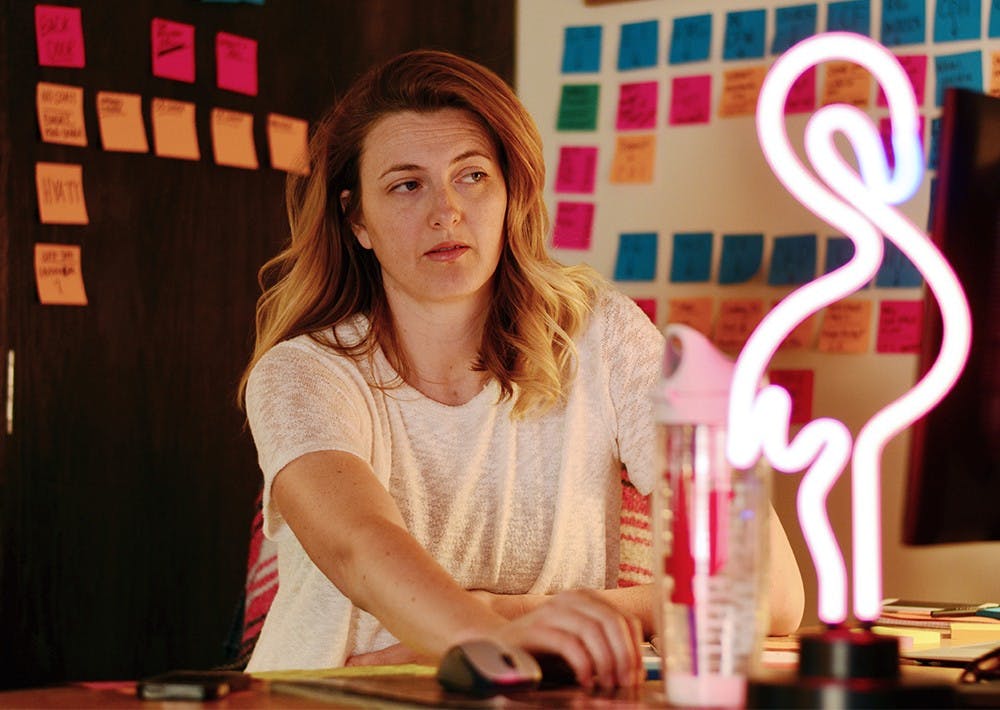As she watches the trailer for “Trapped” on her computer, Jessica Levandoski laughs, not because it is funny, but because she can’t believe what she’s seeing.
One graphic highlights states that have recently passed laws restricting women’s reproductive rights, with Indiana being one of the last to show up.
Levandoski, the director of the Middle Coast Film Festival, worked with a team of 20 others to bring Dawn Porter’s 2016 documentary to Bloomington on Wednesday.
The film was originally going to be included in July’s Middle Coast Film Festival, she said.
“I was saving it for this summer, but with the law that just passed, Dawn said she got five or six emails from women in Indiana asking where they could see this film, and they got in contact with me,” she said.
Last month, Gov. Mike Pence signed new abortion laws, which fall under the blanket of TRAP laws, or Targeted Regulations of Abortion Providers laws.
Levandoski said the laws are counterproductive to what they say they accomplish.
“These laws are being passed under the guise of women’s health, and they’re doing the exact opposite,” she said. “I’m under the assumption they’re getting passed to do away with some of the balancing that has been done with gender equality.”
“Trapped” premiered at this year’s Sundance Film Festival, where it won the award for U.S. Documentary Special Jury Award for Social Impact Filmmaking.
The film interweaves personal stories and legislative battles as Texas and other southern states are subjected to TRAP laws.
During the past few years, many abortion clinics have shut down because of these laws, Levandoski said.
“It did things like put restrictions on abortion providers. Like a hallway has to be eight feet wide instead of four feet,” she said. “So now they can’t provide an abortion because their hallway isn’t wide enough.”
Awareness of these laws needs to be raised so the same restrictions do not happen in Indiana, Levandoski said.
After Wednesday’s screening will be a panel discussion regarding women’s rights in Indiana, along with local opportunities for activism.
The film itself provides advice for activism as well, Levandoski said.
“It gives you action steps of what you can do,” she said. “Our state is a great example of what we should be doing, with the ‘Periods for Pence’ Facebook and Twitter pages.”
Because of this urgency, she said she wants to see as many IU students as possible go to the screening.
“They’re the ones that are going to be needing these services more on just an elective basis,” she said. “They’re at the age where they’re having a lot of sex. Reproductive health is something all women should have a good grasp on.”
Levandoski said she hopes viewers will walk out of the screening more aware and more knowledgeable of the situation.
Although there are other options available to learn about women’s reproductive rights, Levandoski said film is a good medium to express these concerns.
“The delivery of it is so concise,” she said. “You can have a conversation with someone, but a film is this immersive experience into a subject or an idea. It swallows you up for that hour and a half.”






